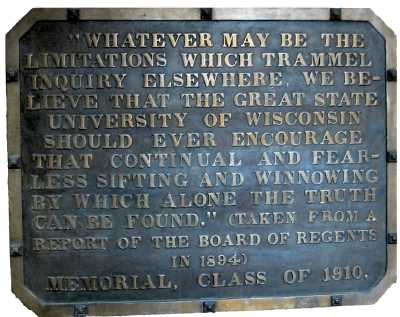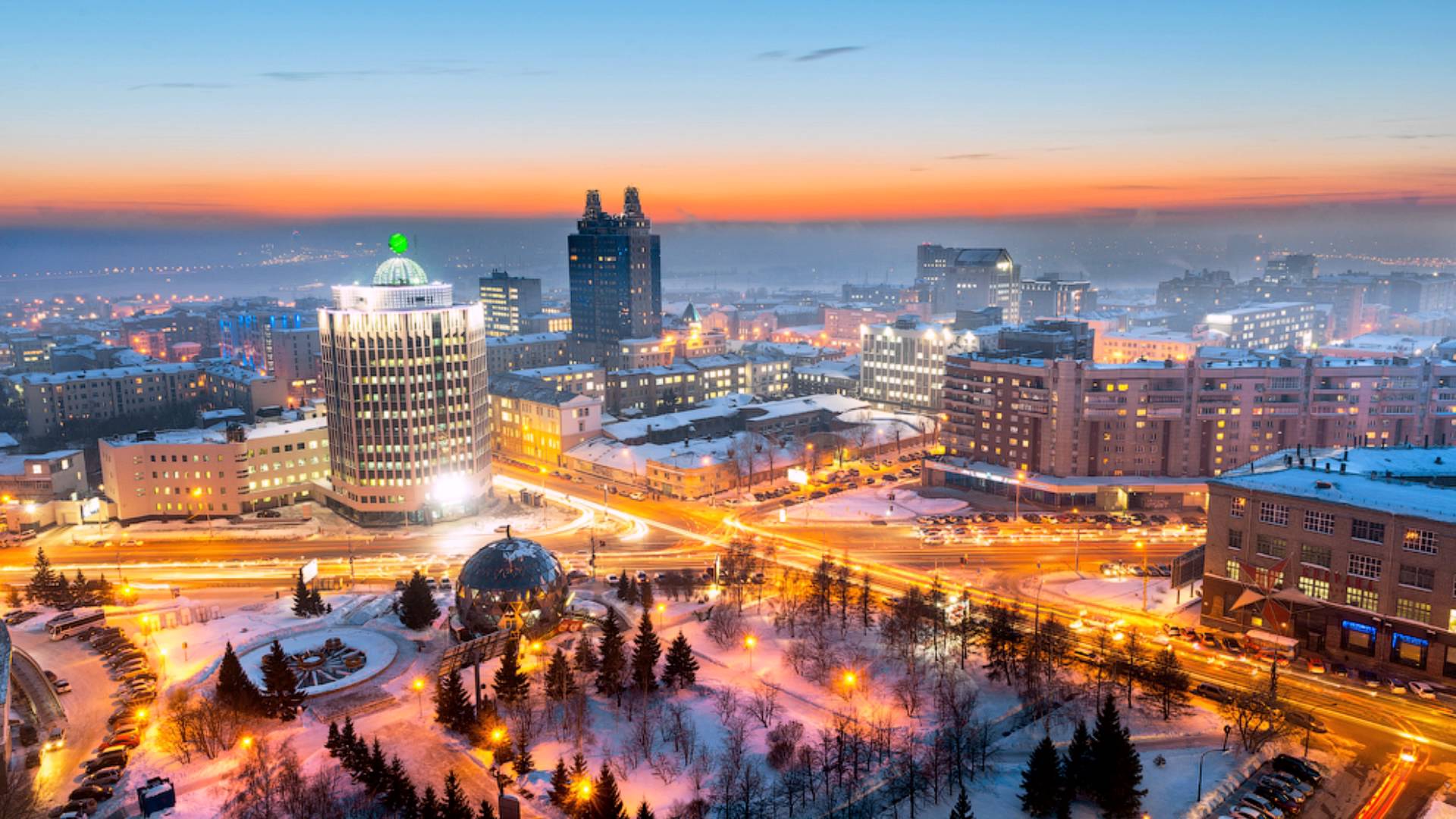|
Raissa L. Berg
Raissa L'vovna Berg (; 1913–2006) was a Russian geneticist and evolutionary biologist. Early life Raissa Berg was born in St. Petersburg, the second child of Lev Berg, Lev Semyonovitch Berg and Polina Abramovna Kotlovker, both natives of Bender, Moldova, Bendery, within the Jewish Pale of Settlement, Pale. In order to study at Moscow University, Lev Berg chose to convert to Lutheranism and became a noted geographer and ichthyologist. When Raissa Berg was six weeks old, her parents separated. Though her mother sued for custody, her father prevailed; he was a Christian and the Russian Orthodox Church decided such cases. Raissa and her brother Simon were baptized and raised by their father, paternal grandmother Klara L'vovna Berg, and stepmother Maria Mikhailovna Ivanova, who Lev Berg married in 1923. Education Berg graduated from St. Petersburg's German Lutheran school in 1929. She then earned a diploma in genetics from Leningrad University, where she studied under H. J. Muller. ... [...More Info...] [...Related Items...] OR: [Wikipedia] [Google] [Baidu] |
Saint Petersburg State University
Saint Petersburg State University (SPBGU; ) is a public research university in Saint Petersburg, Russia, and one of the oldest and most prestigious universities in Russia. Founded in 1724 by a decree of Peter the Great, the university from the beginning has had a focus on fundamental research in science, engineering and humanities. During the Soviet period, it was known as Leningrad State University (). It was renamed after Andrei Zhdanov in 1948 and was officially called "Leningrad State University, named after A. A. Zhdanov and decorated with the Order of Lenin and the Order of the Red Banner of Labour." Zhdanov's was removed in 1989 and Leningrad in the name was officially replaced with Saint Petersburg in 1992. It is made up of 24 specialized faculties (departments) and institutes, the Academic Gymnasium, the Medical College, the College of Physical Culture and Sports, Economics and Technology. The university has two primary campuses: one on Vasilievsky Island and the ot ... [...More Info...] [...Related Items...] OR: [Wikipedia] [Google] [Baidu] |
University Of Wisconsin–Madison
The University of Wisconsin–Madison (University of Wisconsin, Wisconsin, UW, UW–Madison, or simply Madison) is a public land-grant research university in Madison, Wisconsin, United States. It was founded in 1848 when Wisconsin achieved statehood and is the flagship campus of the University of Wisconsin System. The main campus is located on the shores of Lake Mendota; the university also owns and operates a arboretum south of the main campus. UW–Madison is organized into 13 schools and colleges, which enrolled approximately 34,200 undergraduate and 14,300 graduate and professional students in 2024. Its academic programs include 136 undergraduate majors, 148 master's degree programs, and 120 doctoral programs. Wisconsin is one of the founding members of the Association of American Universities. It is considered a Public Ivy and is classified as an R1 University. UW–Madison was also the home of both the prominent "Wisconsin School" of economics and diplomatic h ... [...More Info...] [...Related Items...] OR: [Wikipedia] [Google] [Baidu] |
University Of Wisconsin–Madison Faculty
A university () is an institution of tertiary education and research which awards academic degrees in several academic disciplines. ''University'' is derived from the Latin phrase , which roughly means "community of teachers and scholars". Universities typically offer both undergraduate and postgraduate programs. The first universities in Europe were established by Catholic monks. The University of Bologna (), Italy, which was founded in 1088, is the first university in the sense of: *being a high degree-awarding institute. *using the word (which was coined at its foundation). *having independence from the ecclesiastic schools and issuing secular as well as non-secular degrees (with teaching conducted by both clergy and non-clergy): grammar, rhetoric, logic, theology, canon law and notarial law.Hunt Janin: "The university in medieval life, 1179–1499", McFarland, 2008, , p. 55f.de Ridder-Symoens, Hilde''A History of the University in Europe: Volume 1, Universities in the Mid ... [...More Info...] [...Related Items...] OR: [Wikipedia] [Google] [Baidu] |
Novosibirsk State University Alumni
Novosibirsk is the largest city and administrative centre of Novosibirsk Oblast and the Siberian Federal District in Russia. As of the 2021 Russian census, 2021 census, it had a population of 1,633,595, making it the most populous city in Siberia and the list of cities and towns in Russia by population, third-most populous city in Russia after Moscow and Saint Petersburg. Additionally, it is the largest city in the Asian part of Russia and the most populous city in the country that does not have the status of a Federal subjects of Russia, federal subject. Novosibirsk is located in southwestern Siberia, on the banks of the Ob River. Novosibirsk was founded in 1893 on the Ob River crossing point of the future Trans-Siberian Railway, where the Novosibirsk Rail Bridge was constructed. Originally named Novonikolayevsk ("New Nicholas") in honor of Nicholas II of Russia, Emperor Nicholas II, the city rapidly grew into a major transport, commercial, and industrial hub. Novosibirsk was r ... [...More Info...] [...Related Items...] OR: [Wikipedia] [Google] [Baidu] |
Saint Petersburg State University Alumni
In Christian belief, a saint is a person who is recognized as having an exceptional degree of holiness, likeness, or closeness to God. However, the use of the term ''saint'' depends on the context and denomination. In Anglican, Oriental Orthodox, and Lutheran doctrine, all of their faithful deceased in Heaven are considered to be saints, but a selected few are considered worthy of greater honor or emulation. Official ecclesiastical recognition, and veneration, is conferred on some denominational saints through the process of canonization in the Catholic Church or glorification in the Eastern Orthodox Church after their approval. In many Protestant denominations, and following from Pauline usage, ''saint'' refers broadly to any holy Christian, without special recognition or selection. While the English word ''saint'' (deriving from the Latin ) originated in Christianity, historians of religion tend to use the appellation "in a more general way to refer to the state of special ... [...More Info...] [...Related Items...] OR: [Wikipedia] [Google] [Baidu] |
Soviet Biologists
This list of Russian biologists includes the famous biologists from the Russian Federation, the Soviet Union, the Russian Empire and other predecessor states of Russia. Biologists of all specialities may be listed here, including ecologists, botanists, zoologists, paleontologists, biochemists, physiologists and others. Alphabetical list A *Johann Friedrich Adam, discoverer of the Adams mammoth, the first complete woolly mammoth skeleton *Igor Akimushkin, biologist *Vladimir Prokhorovich Amalitskii, paleontologist *Nicolai Ivanovich Andrusov, Nicolai Andrusov, paleontologist *Andrey Avinoff, entomologist *Anatoly Andriyashev, Ichthyology, ichthyologist, zoogeography, zoogeographist B *Karl Ernst von Baer, naturalist, founder of the Russian Entomological Society, formulated embryological Baer's laws *Alexander Barchenko, notable for his research of Hyperborea *Jacques von Bedriaga, prominent herpetologist, described Bedriaga's rock lizard and Bedriaga's skink *Andrey Belozersky, ... [...More Info...] [...Related Items...] OR: [Wikipedia] [Google] [Baidu] |
Soviet Geneticists
The Union of Soviet Socialist Republics. (USSR), commonly known as the Soviet Union, was a transcontinental country that spanned much of Eurasia from 1922 until it dissolved in 1991. During its existence, it was the largest country by area, extending across eleven time zones and sharing borders with twelve countries, and the third-most populous country. An overall successor to the Russian Empire, it was nominally organized as a federal union of national republics, the largest and most populous of which was the Russian SFSR. In practice, its government and economy were highly centralized. As a one-party state governed by the Communist Party of the Soviet Union (CPSU), it was a flagship communist state. Its capital and largest city was Moscow. The Soviet Union's roots lay in the October Revolution of 1917. The new government, led by Vladimir Lenin, established the Russian SFSR, the world's first constitutionally communist state. The revolution was not accepted by all wi ... [...More Info...] [...Related Items...] OR: [Wikipedia] [Google] [Baidu] |
Russian Geneticists
Russian(s) may refer to: *Russians (), an ethnic group of the East Slavic peoples, primarily living in Russia and neighboring countries *A citizen of Russia *Russian language, the most widely spoken of the Slavic languages *''The Russians'', a book by Hedrick Smith *Russian (comics), fictional Marvel Comics supervillain from ''The Punisher'' series *Russian (solitaire), a card game * "Russians" (song), from the album ''The Dream of the Blue Turtles'' by Sting *"Russian", from the album ''Tubular Bells 2003'' by Mike Oldfield *"Russian", from the album '' '' by Caravan Palace *Nik Russian, the perpetrator of a con committed in 2002 See also * *Russia (other) *Rus (other) *Rossiysky (other) *Russian River (other) *Rushen (other) Rushen may refer to: Places * Rushen, formally Kirk Christ Rushen, a historic parish of the Isle of Man ** Rushen (constituency), a House of Keys constituency of which the parish forms part ** Rushen (sheading ... [...More Info...] [...Related Items...] OR: [Wikipedia] [Google] [Baidu] |
Women Geneticists
A woman is an adult female human. Before adulthood, a female child or adolescent is referred to as a girl. Typically, women are of the female sex and inherit a pair of X chromosomes, one from each parent, and women with functional uteruses are capable of pregnancy and giving birth from puberty until menopause. More generally, sex differentiation of the female fetus is governed by the lack of a present, or functioning, ''SRY'' gene on either one of the respective sex chromosomes. Female anatomy is distinguished from male anatomy by the female reproductive system, which includes the ovaries, fallopian tubes, uterus, vagina, and vulva. An adult woman generally has a wider pelvis, broader hips, and larger breasts than an adult man. These characteristics facilitate childbirth and breastfeeding. Women typically have less facial and other body hair, have a higher body fat composition, and are on average shorter and less muscular than men. Throughout human history, traditional ge ... [...More Info...] [...Related Items...] OR: [Wikipedia] [Google] [Baidu] |
Valentin Sergeevich Kirpichnikov
Valentin is a male given name meaning "strong, healthy, power, rule". It comes from the Latin name ''Valentinus'', as in Saint Valentin. Commonly found in Argentina, Bulgaria, France, Germany, Italy, Romania, Russia, Scandinavia, Ukraine, Latin America and Spain. Valentin is also used as a surname in Spanish and German speaking-countries. Given name First name * Valentin Abel (born 1991), German politician * Valentin Alexandru (born 1991), Romanian footballer * Valentín Alsina (1802–1869), Argentine statesman * Valentín Barco (born 2004), Argentine footballer * Valentín Bettiga (born 1999), Argentine basketball player * Valentin Blass (born 1995), German basketball player * Valentin Barbero (born 2000), Argentine footballer * Valentin Bondarenko (1937–1961), Soviet fighter pilot * Valentin de Boulogne (before 1591 – 1632), French painter * Valentín Burgoa (born 2000), Argentine footballer * Valentin Brunel (born 1996), French DJ known as Kungs * Valentin "Val" Brunn ... [...More Info...] [...Related Items...] OR: [Wikipedia] [Google] [Baidu] |





